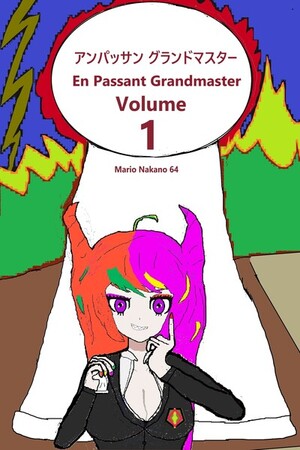Chapter 2:
The Protagonist Is Being Buried. Alive.
Blue Monday
“You cannot save everyone,” I once warned the protagonist in his youth.
He had then tried to deny this fact for years, but he has grown old enough to admit it as a fact of life. All someone needs to do to understand this fact is walk into a battlefield or a hospital. Everyone dies no matter what.
As for the protagonist, who is neither a soldier or a doctor, he has learned this lesson through his love for writing.
Let’s move over to the protagonist’s desk. His desk is simple: there is a laptop, a pile of books, and a source of artificial light. How they are oriented and how they look does not matter to our plot.
In this particular scene, our protagonist is sitting at his desk and looking over the various new novels that have been published on the writing platform. He appears melancholic.
As the protagonist gets off his chair and lies down on the bed face flat, perhaps in an attempt to reduce the amount of oxygen that is being supplied to his head, let’s zoom in further onto the laptop screen.
If we scroll down to the bottom of the writing platform’s “novels” page, then click on “last”, we can see that there’s about six hundred and forty pages of novels, with each of them having ten unique novels on each page. That’s more than six thousand novels.
Upon further investigation, we can see that four thousand of these are incomplete. That’s four thousand dreams, four thousand ideas that have gone unnoticed by the rest of the world.
It is undeniable that writing platforms are full of people who simply dip their feet in the water to see how cold the water is, but the truth is that all these people had some kind of idea that they wanted to test out. And many of these unfulfilled writers had been carrying their ideas deep within their hearts for a long time.
Turning our attention momentarily back to the protagonist, who is face flat in his bed, I can tell you that he had been dreaming of stories for a long long time, especially during his teenage years when he had very few friends to interact with after school. He would come straight home, play games and what not, then eventually end up on the bed alone. But that’s when the magic came to him–when he was alone.
He dreamed of a world where he was not himself, where no one currently in his life existed and his reality was replaced by another. Sometimes it was set in the distant future where mechs and starships were a part of everyday life, sometimes it was set in a fantastical present where mythical heroes and villains were summoned to a parallel reality, and sometimes, it was simply set in a quiet, otherworldly library.
Most of these dreams of his youth could be considered insane and incoherent, but one thing is true: there was gold in his dreams. There were wonderful lessons, relatable emotions, and amazing possibilities he wanted to share with the world. Perhaps the execution was poor and nonexistent, but there was heart.
Of course, those dreams were never realized. He grew out of them. By the time he decided to become a writer, these naive dreams were long gone and could not be recreated. In that sense, even before he began writing, he already knew what it felt like to have his creations die in his hands.
Even once he became a writer, there were new ideas that he could never put on paper and finish. Even more of his creations remained mouthless due to his own lack of time and competency.
Yet the description of life I’ve provided does not only apply to this specific protagonist. He is just one of many. And on this melancholic day, the protagonist feels that he is being buried alive in a cemetery of dreams.




Please sign in to leave a comment.